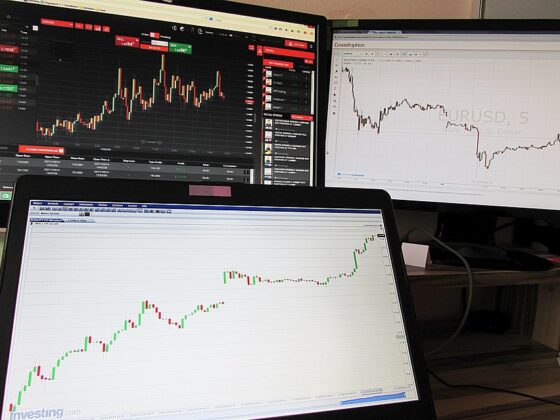Maximizing Your Profits: Smart Trading Strategies for Newcomers
In today's fast-paced world, more and more people are turning to trading as a way to supplement their income or even as a full-time career. However, trading can be a tricky business, and many newcomers find themselves overwhelmed by the complexities of the market. In order to maximize your profits and minimize your risks, it's important to have a solid trading strategy in place. In this article, we will discuss some smart trading strategies for newcomers to help you navigate the market and make the most out of your investments.
1. Do Your Research
One of the most important things you can do as a newcomer to the trading world is to do your research. Before you start trading, take the time to educate yourself on the market, different trading strategies, and the assets you will be trading. By building a solid foundation of knowledge, you will be better equipped to make informed decisions and minimize your risks.
2. Start Small
When you are just starting out as a trader, it's important to start small. Instead of diving headfirst into the market with a large sum of money, begin with a small investment and gradually increase your position as you gain more experience and confidence. By starting small, you can test out different trading strategies without risking a significant amount of capital.
3. Have a Trading Plan
Having a trading plan is essential for maximizing your profits and minimizing your risks. Your trading plan should outline your goals, risk tolerance, entry and exit points, and overall strategy. By having a clear plan in place, you can avoid making impulsive decisions and stick to your trading strategy even when emotions are running high.
4. Diversify Your Portfolio
Diversification is key to minimizing your risks and maximizing your profits in trading. Instead of putting all of your eggs in one basket, spread your investments across different assets and markets. This way, if one investment performs poorly, you won't lose everything. Diversification can help you weather market volatility and protect your investments.
5. Use Stop Loss Orders
Stop loss orders are a valuable tool for managing risk in trading. By setting a stop loss order, you can automatically sell a security when it reaches a certain price, preventing further losses. Stop loss orders can help you protect your investments and avoid emotional decision-making in times of market volatility.
6. Keep Emotions in Check
Emotions can play a significant role in trading, often leading to irrational decisions and poor investment choices. As a newcomer, it's important to keep your emotions in check and stick to your trading plan. Avoid making impulsive decisions based on fear or greed, and instead, rely on your research and analysis to guide your trading decisions.
7. Monitor the Market
To be successful in trading, it's important to stay informed about market trends and developments. Monitor the market regularly, stay up-to-date on news and events that may impact your investments, and be prepared to adjust your trading strategy accordingly. By staying informed, you can make informed decisions and maximize your profits.
8. Learn from Your Mistakes
Mistakes are an inevitable part of trading, especially for newcomers. Instead of dwelling on your losses, use them as learning opportunities to improve your trading strategy. Analyze your mistakes, identify what went wrong, and make adjustments to avoid repeating the same errors in the future. By learning from your mistakes, you can grow as a trader and increase your chances of success.
9. Seek Professional Advice
If you are new to trading and feeling overwhelmed, don't hesitate to seek professional advice. A financial advisor or trading mentor can provide valuable insights and guidance to help you navigate the market and make sound investment decisions. By seeking professional advice, you can gain a deeper understanding of trading and increase your chances of success.
FAQs
Q: What is the best trading strategy for beginners?
A: The best trading strategy for beginners is one that is simple, easy to understand, and aligned with your goals and risk tolerance. Start by educating yourself on different trading strategies, test out a few that resonate with you, and gradually refine your approach based on your experience and results.
Q: How much money should I invest as a beginner trader?
A: As a beginner trader, it's important to start small and gradually increase your investments as you gain more experience and confidence. Start with a small sum of money that you can afford to lose, and avoid investing a significant amount of capital until you have a solid understanding of the market and trading strategies.
Q: How can I minimize my risks in trading?
A: To minimize your risks in trading, it's important to diversify your portfolio, use stop loss orders, keep your emotions in check, and stay informed about market trends and developments. By following these strategies and having a solid trading plan in place, you can minimize your risks and maximize your profits as a trader.
In conclusion, trading can be a lucrative venture for newcomers, but it's important to approach it with caution and a solid trading strategy. By doing your research, starting small, having a trading plan, diversifying your portfolio, using stop loss orders, keeping emotions in check, and staying informed about market trends, you can maximize your profits and minimize your risks in trading. Remember to learn from your mistakes, seek professional advice when needed, and stay committed to honing your trading skills. With time and experience, you can become a successful trader and achieve your financial goals.











